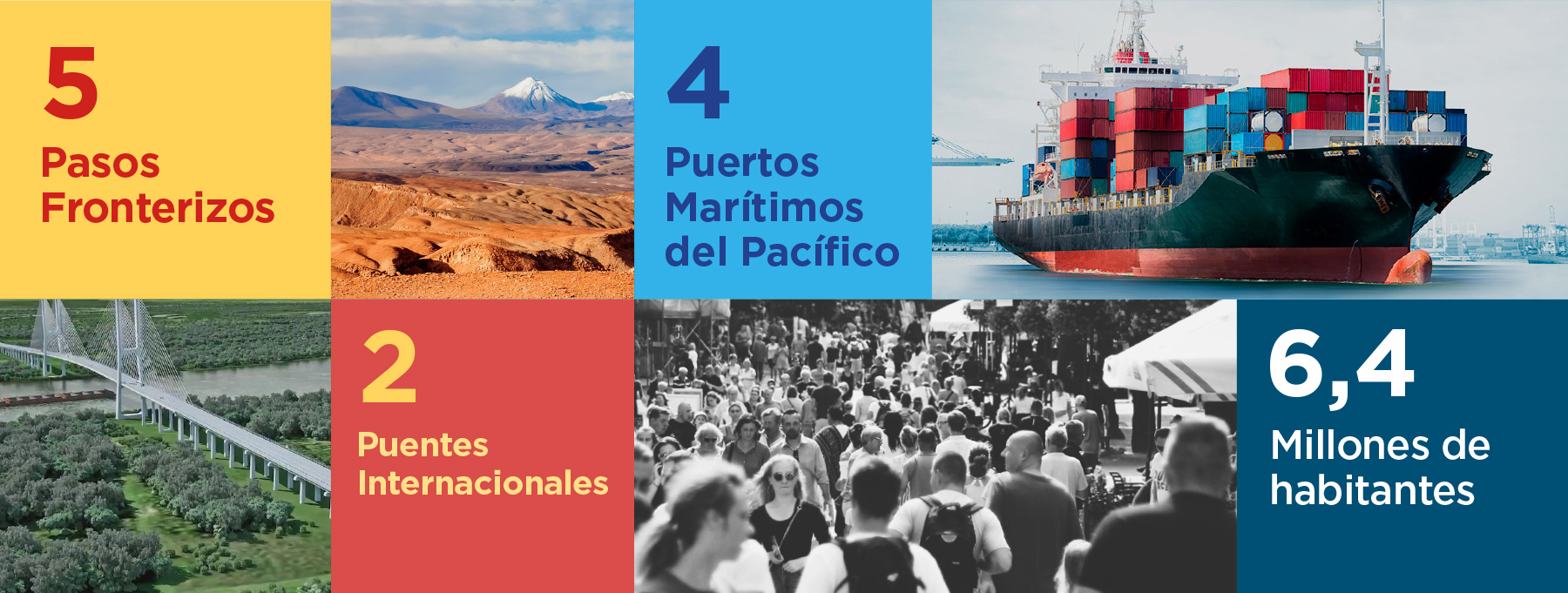What is the Corridor
The Capricorn Bioceanic Corridor (CBC) is a multilateral initiative for regional integration and development. It is based on its potential to significantly transform logistics and trade in the region and to contribute to the development of the countries and subnational territories involved. The Corridor connects the Mediterranean areas of Brazil’s central-west, northern Paraguay, Argentina, and Chile with strategic access to the Atlantic and Pacific Oceans, creating a link between the port of Santos (Brazil) and the northern Chilean ports.
Grounded in a history dating back to the 1960s, the current momentum of the CBC is driven by the four countries involved and the eight subnational states whose territories are traversed by the Corridor’s route: Tarapacá, Antofagasta, Jujuy, Salta, Presidente Hayes, Boquerón, Alto Paraguay, and Mato Grosso do Sul.
The cornerstone of this initiative was laid in 2015 with the signing of the “Asunción Declaration on Bioceanic Corridors,” signed by the presidents of Argentina, Brazil, Chile, and Paraguay. As a result of this declaration, the Quadripartite Working Group was formed, comprising the Foreign Ministries of the four countries, which led several work sessions over the next five years.
After the global paralysis caused by the pandemic, the eight subnational territories (departments, regions, provinces, or states, depending on the country) formalized their intention to work together under the Capricorn Bioceanic Corridor Integration Forum, signed by the subnational states in the Campo Grande Declaration (Brazil) in May 2022.
A year later, as a result of the III Integration Forum held in Salta, the IDB (Inter-American Development Bank) was requested to provide strategic and financial support to establish a Regional Public Good (RPG), with the main goal of developing a Regional Master Plan for the Integration and Development of the Capricorn Bioceanic Corridor (PM-CBC).

